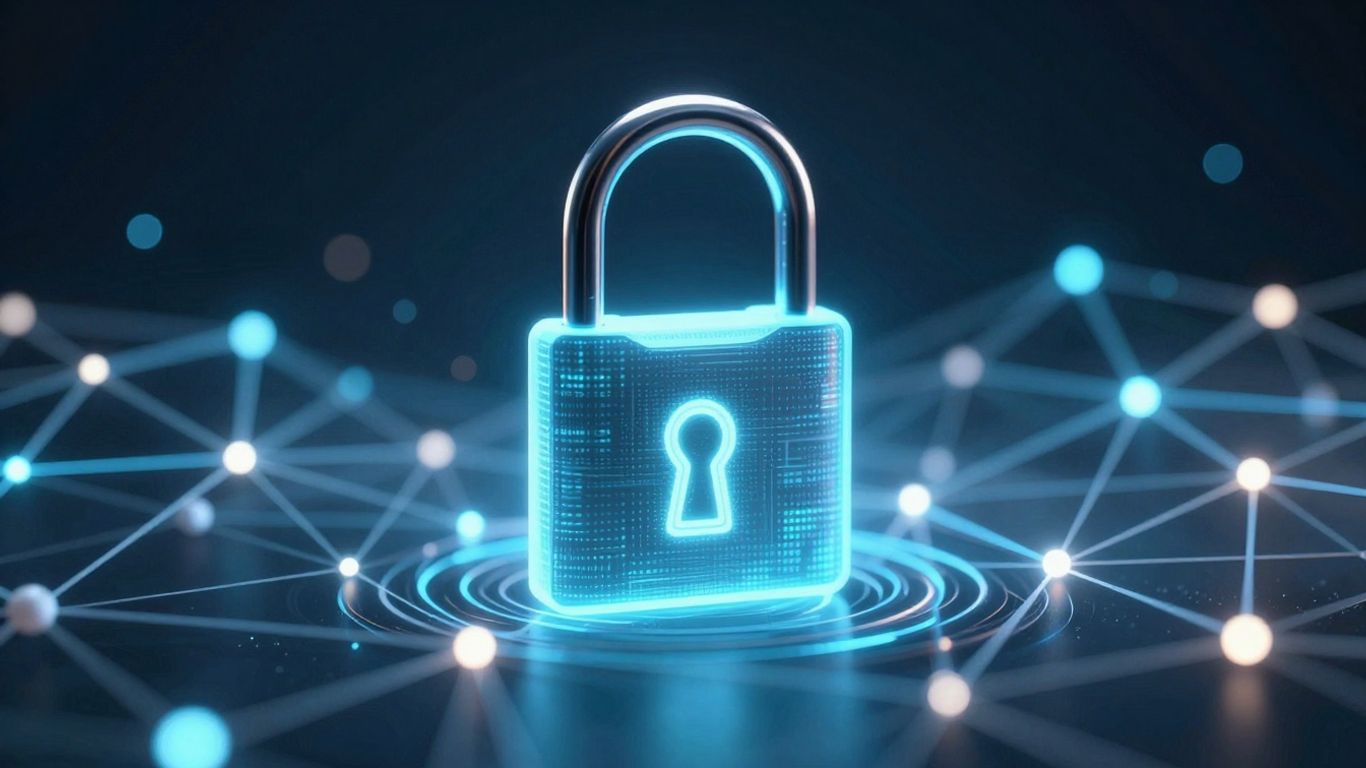[ newsletter ]
Stay ahead of Web3 threats—subscribe to our newsletter for the latest in blockchain security insights and updates.
Thank you! Your submission has been received!
Oops! Something went wrong. Please try again.
Become a security auditor in 2025! Learn essential skills, certifications, and career paths to excel in this in-demand cybersecurity role.





Thinking about becoming a security auditor? It's a smart move. These pros check if an organization's digital defenses are actually holding up. They find weak spots before bad actors do, which is super important for keeping data safe and following rules. The job market for security auditors is really growing, and it pays pretty well too. If you're curious about how systems work and love solving puzzles, this career might be for you. This guide will break down what you need to know to get started and succeed as a security auditor in 2025.

While a formal degree isn't always a strict requirement for security auditing, it can certainly give you a head start. Many aspiring auditors pursue degrees in fields like Computer Science, Cybersecurity, or Information Technology. These programs often cover core subjects such as algorithms, database management, networking principles, and the basics of security. If you're looking to speed things up, some online master's programs can also be a good option. However, practical experience often weighs just as heavily, if not more, than a degree in this field.
Getting your foot in the door often means starting in related IT roles. Think about positions like a systems administrator, a security analyst, or even IT support. These jobs give you a real-world look at how IT systems operate and how security measures are put into practice. After about three to five years in these kinds of roles, you'll likely have the experience needed to start moving towards auditor positions. This hands-on time helps you get good at spotting security weaknesses and figuring out how to build defenses against threats.
To be a good security auditor, you need a solid grasp of how networks and applications work, including their common weak spots and how to secure them properly. It's also really helpful to know the basics of programming, like Python or Java. This helps you understand what's going on under the hood of systems. Familiarity with cloud security concepts and risk assessment frameworks will also make you a more well-rounded candidate. Being comfortable with common audit and security tools is a must, too.
The security auditor's job is about more than just finding problems; it's about understanding the business context of those problems and helping to fix them in a way that makes sense for the company.
So, you want to be a security auditor? That's cool. It's not just about knowing computers, though. You really need a mix of technical know-how and the ability to talk to people. You're basically a detective for digital stuff, looking for weak spots before the bad guys do.
This is where you get your hands dirty. You need to understand how computers talk to each other over networks and how applications are built. Think about common ways hackers get in – like weak passwords, unpatched software, or code that's not written securely. You'll be looking at firewalls, how data moves, and what's going on inside the apps people use every day. It’s about knowing the usual suspects when it comes to security holes.
Companies have to follow a bunch of rules, right? Like PCI DSS if they handle credit cards, or SOC 2 for service providers. Your job is to check if they're actually doing what they say they are. This means knowing these standards inside and out and being able to measure a company's practices against them. It’s like being a referee, making sure everyone plays by the rules.
Here's a quick look at some common standards:
Nobody audits by hand anymore, well, not entirely. You'll be using special software to help you out. Think vulnerability scanners that poke around for weaknesses, or tools that analyze system logs to see if anything weird happened. You'll also need to know your way around things like penetration testing tools, even if you're not doing the actual testing yourself. It’s about knowing what tools are out there and how to use them to find problems.
Finding a problem is only half the battle. You have to be able to figure out why it's a problem and how serious it is. That means looking at data, spotting patterns, and connecting the dots. Then, you have to explain it to people who might not know a firewall from a firewall. You'll be writing reports and talking to managers, so being clear and concise is super important. You need to translate all that technical jargon into something that makes sense to the business.
Being a security auditor means you're constantly learning. The bad guys are always coming up with new tricks, and the technology changes fast. You have to be curious, always asking questions, and willing to dig deep to find the truth. It's a job that requires a sharp mind and a steady hand.
Getting certified is a smart move when you're aiming to be a security auditor. It shows you know your stuff and can really help you stand out. For those just starting out or looking to build a solid base, a few certifications are particularly helpful.
Earning these certifications isn't just about a piece of paper; it's about demonstrating a commitment to the field and a proven level of knowledge that employers look for. They can significantly boost your resume and open doors to better job opportunities.
Once you've got some experience under your belt and a foundational certification or two, you might want to look into more specialized credentials. These can help you focus on specific areas of security auditing or prove your skills in more complex domains.
Getting certified is just the first part; keeping it is the next challenge. Most of these certifications aren't a one-and-done deal. You'll need to keep your skills sharp and stay up-to-date with the latest in cybersecurity.
Staying current is key. The threat landscape changes daily, and new technologies are always emerging. By actively pursuing continuing education and staying engaged with the cybersecurity community, you ensure your certifications remain relevant and your skills stay sharp.

So, you're thinking about becoming a security auditor? That's a solid plan. It's not just about finding problems; it's about helping companies stay safe and sound in a world that's always changing. Your career path here can really go places, offering good pay and lots of room to grow. Let's break down what that looks like.
When you're just starting out, you'll likely be in roles like Junior Security Auditor, IT Auditor, or maybe an Application Security Analyst. These jobs are all about getting your hands dirty, helping out with audits, scanning for weak spots, and generally supporting the senior folks. It's your chance to get familiar with the tools and standards, like the OWASP Top 10 or NIST guidelines. Think of it as your training ground. Entry-level certifications, like CompTIA Security+, can really give you a leg up here.
After you've put in a few years, say 3 to 5, and maybe picked up some more certifications like CISA or CISSP, you'll start taking on more responsibility. This is where you might lead your own audits, manage a small team, or even start designing the audit plans yourself. You become the go-to person for technical questions and start working more closely with management on risk and compliance issues. It's a big step up from just assisting.
Further down the road, things can really open up. You might move into management roles like IT Audit Manager or Director of IT Audit. Some auditors even aim for the top spot, like Chief Information Security Officer (CISO). In these positions, you're not just doing audits; you're setting the overall security strategy, managing budgets, and making sure the company's security goals line up with its business objectives. Alternatively, you could choose to specialize in a hot area like cloud security or digital forensics, becoming a highly sought-after expert in a niche field. You might also find yourself consulting for different companies, assessing their vendors or supply chains, which offers a lot of variety.
The digital world is always changing, and so are the ways bad actors try to break in. As a security auditor, you can't just rely on what you learned last year. New types of malware pop up, different ways to exploit software appear, and even how people access systems can shift. Staying ahead of these emerging threats is a big part of the job. It means constantly reading up on security news, following researchers, and understanding the latest attack methods. Think of it like being a detective, but instead of solving old crimes, you're trying to predict and prevent new ones before they happen. This requires a curious mind and a willingness to keep learning, even when it feels like you're just catching up.
Most organizations today aren't simple. They have a mix of old computer systems, new cloud services, mobile devices, and maybe even some smart gadgets connected to the network. Each of these has its own security quirks. Your job as an auditor is to look at all of it and figure out if it's all working together securely. This can get complicated fast. You might be auditing a company that uses a lot of different software from various vendors, or one that has employees working from home using their own devices. It's your task to make sense of these different pieces and ensure they don't create weak spots. You'll need to be good at seeing the big picture while also noticing the small details that could cause problems. It’s about understanding how everything connects and where the risks might be hiding.
Governments and industry groups are always creating new rules about how companies should protect data. Think about things like data privacy laws or standards for handling credit card information. These rules can be quite detailed and change over time. As a security auditor, you have to know what these rules are and check if the company you're auditing is actually following them. This isn't just about ticking boxes; it's about making sure the company is genuinely protecting its customers and its own information. Sometimes, these regulations are specific to an industry, like healthcare or finance, so you might need to learn about the rules for different sectors. It’s a constant challenge to keep up with all the requirements and make sure audits reflect the latest legal and industry expectations. You can find more information on common compliance frameworks like SOC 2.
Being a security auditor can mean juggling a lot of tasks. You might have several audits happening at once, each with its own deadlines and requirements. You also need to think about the tools you use and the time it takes to perform checks. Sometimes, you might not have all the resources you need, like access to certain systems or enough people to help with a big audit. This is where good planning and organization come in. You have to figure out the best way to use your time and the tools available to get the job done effectively. It’s about being smart with your resources, prioritizing what’s most important, and communicating clearly about what you can realistically achieve. Sometimes, it means saying no to extra tasks if you're already overloaded, or finding creative ways to get the information you need without causing too much disruption.
Being a security auditor isn't just about following a checklist; it's about really digging in. You've got to have that itch to figure out how things work and, more importantly, how they could break. This means asking a lot of "why?" questions and not being satisfied with surface-level answers. Think of it like being a detective for digital systems. You're looking for those tiny clues, the odd patterns, the things that just don't quite add up. This curiosity drives you to explore beyond the obvious, which is where you often find the real risks. And when you find something, you need to be able to trace it back, understand its root cause, and see how it connects to other parts of the system. It's a constant process of investigation and analysis.
Let's be real, you're going to be looking at some pretty sensitive stuff – company secrets, customer data, all that jazz. Because of this, your integrity has to be rock solid. People need to trust that you're not going to misuse the information you find or spill the beans. This isn't just about following rules; it's about building a reputation for being someone who can be counted on. When you're known for being honest and discreet, it makes your job a lot easier because people are more willing to cooperate with you. It's the bedrock of this profession.
Don't try to go it alone. The cybersecurity world moves fast, and staying connected with other professionals is super important. Think about joining industry groups, going to local meetups, or even just participating in online forums. These connections aren't just for swapping war stories; they're a great way to learn about new threats, discover new tools, and hear about job openings. You never know who might have a piece of advice or an introduction that could really help your career along. It's like having a support system and a knowledge base all rolled into one.
This is probably the most obvious one, but it's also the most critical. The bad guys are always coming up with new tricks, and the technology landscape is changing constantly. What was secure yesterday might be a gaping hole tomorrow. So, you've got to make it a habit to keep learning. This means reading industry news, taking online courses, maybe even getting new certifications. You need to understand not just the tech itself, but how it's being used and, more importantly, how it's being attacked. It's a continuous learning curve, and if you fall behind, you're not going to be much use.
Here's a quick look at how staying current can impact your role:
The pace of change in cybersecurity means that a security auditor's skillset is never truly 'finished.' Continuous learning isn't just a recommendation; it's a requirement for staying effective and relevant in the field. Adapting to new challenges and technologies is part of the job description, whether you're just starting out or you're a seasoned pro.
So, if you're thinking about a career in security auditing, it's definitely a path worth exploring. The demand is high, and it's only going to keep growing. You'll need a good mix of technical know-how, like understanding networks and compliance rules, plus solid people skills to explain complex issues. Getting the right certifications, like CISA or CISSP, will really help you stand out. Remember, this field changes fast, so staying curious and always learning is key. It's a challenging but rewarding job that helps keep businesses safe in our digital world. If you're up for the challenge, the opportunities are definitely there for 2025 and beyond.
Think of a security auditor like a detective for computer systems. They look closely at how a company keeps its digital information safe. Their job is to find weak spots, like unlocked doors or hidden traps, before bad guys can find them. They check if everything is set up correctly and follows the rules to keep important data protected.
While a college degree in things like computer science or cybersecurity is super helpful, it's not the only way. Many people get started by working in IT jobs first, like a computer support person or a network helper. Gaining real-world experience and getting special certificates can also show you know your stuff and help you get hired.
You need to be good with computers, especially how networks and apps work. It's also key to understand the rules and laws that companies have to follow, like HIPAA or PCI DSS. Being able to use special tools to find problems and explain what you found clearly to others is a big deal too. Being super organized and noticing small details is also a must.
Starting out, you might be a junior auditor, helping out with checks. With more experience, you can lead audits, manage teams, or even become a top security boss. Some auditors also become consultants, helping different companies improve their security, or focus on specific areas like cloud security.
Security auditors are in high demand, so they usually get paid pretty well. Depending on your experience and where you work, you could earn anywhere from about $75,000 to over $95,000 a year. As you get more skilled and take on bigger jobs, your salary can go up even more.
The world of computers changes really fast, so auditors always have to keep learning to keep up with new hacking tricks. They also deal with lots of different types of computer systems, from company servers to cloud services, which can be complicated. Plus, there are always new rules and laws to follow, and sometimes auditors have to do a lot of work with limited time or help.


